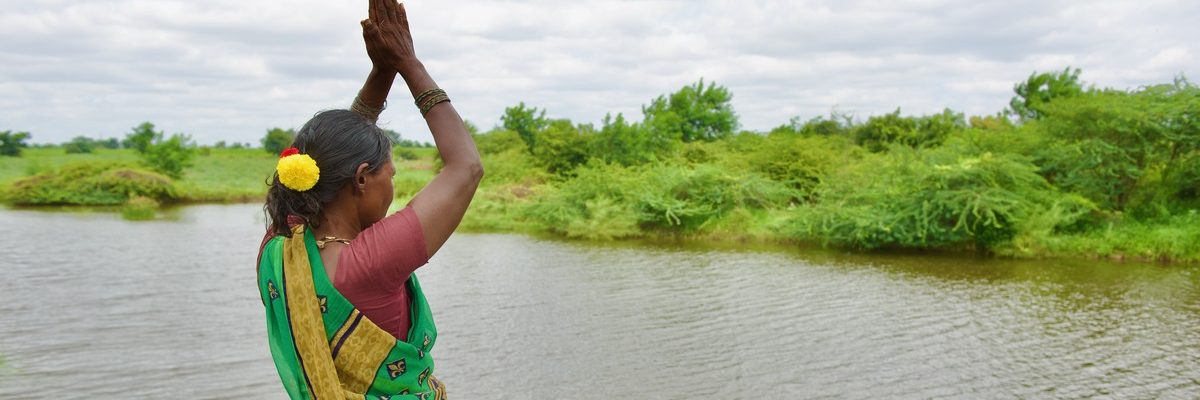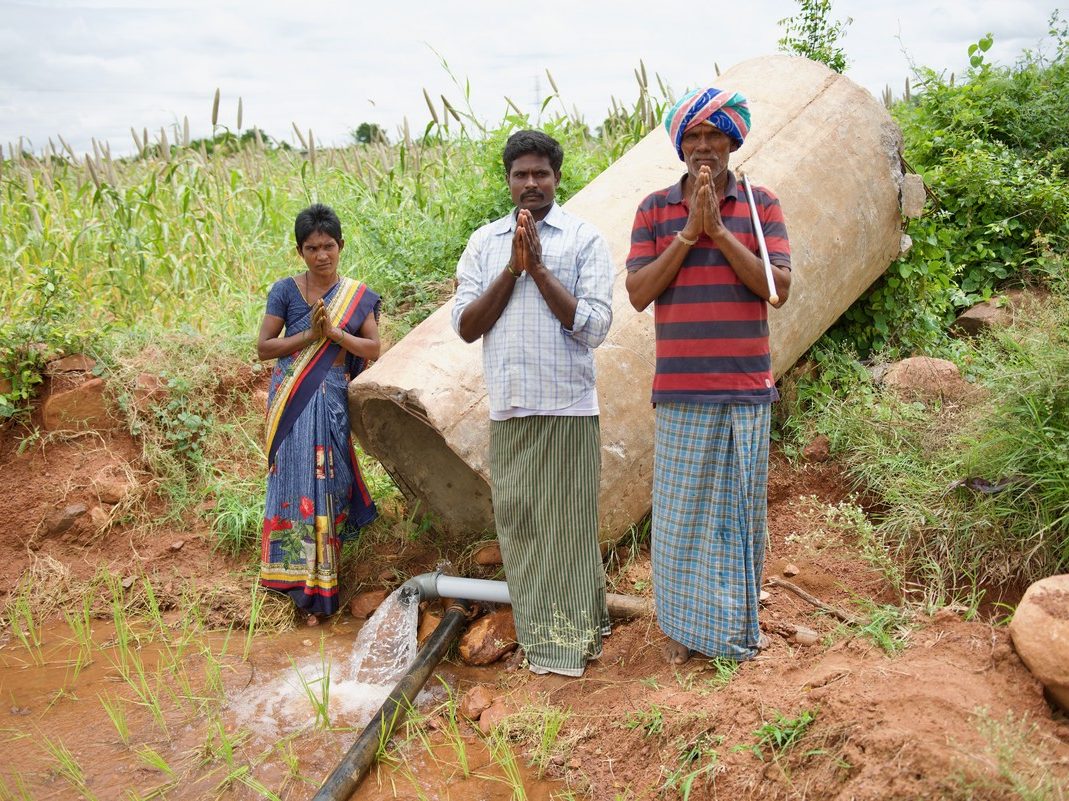S. Gundala, Dhone Mandal, Nandyal Dist, Andhra Pradesh, India
In collaboration with

May 2023 – December 2023
The project aims to recover the groundwater resources required for agriculture and drinking water in the village. It involves restoring the local stream, called Gundalaiah Vanka, and renovating two water bodies built by the government long ago but damaged over time.
Objectives
- Water conservation to restore groundwater resources
- Ensure the availability of sufficient water for agriculture and thus improve farmers’ livelihoods.
- Improving awareness among people and members of the Environmental Development Committee on efficient water management.
Beneficiaries
1.148 direct
250 indirect
Carrier vendors, skilled and unskilled workers.

On the ground
Deterioration of dryland cultivation and drop in the water table
The Nandyal district in the state of Andhra Pradesh is an area that experiences lower rainfall due to mountain ranges blocking moist winds. Although there is an irrigation facility through a canal from the Tungabhadra dam in Karnataka, it only covers a few areas. However, the Dhone Mandal, where the proposed village of S. Gundala is located, relies on rain-fed farming.
Due to scarce and unpredictable rainfall, rain-fed farming is gradually diminishing. As a result, farmers are forced to rely on irrigation from wells. However, due to drought, the groundwater level is continuously decreasing. This situation is pushing the community into poverty. Therefore, supporting them in restoring agriculture through water regeneration is of utmost importance.

In detail
Community participation is a crucial element for the project’s success and for achieving sustainable outcomes. Therefore, farmers will be encouraged to participate in the project’s execution. The Community Ecological Development Committee, duly selected by the community, plays a vital role in labor selection, material procurement, determining wages, monitoring project progress, and coordinating collaborators.
Furthermore, Rural Development Trust takes full responsibility for project implementation without involving any local partner or civil contractor, which helps reduce costs.
We will carry out the following activities:
- Organize educational and orientation meetings, and ensure participation.
- Realization of the topographical survey for the boundary of the land.
- Technical study.
- Excavation and formation of earthen dikes to restore the abandoned stream.
- Renovation of two check dams on the other side of the stream.
- Planting on the embankments.
- Monitoring and control.
- Technical validation
- Project reports
- Provide close and personalized support
The project positively impacts the lives of farmers affected by drought. The community will have greater awareness about water management, responsibility for future maintenance, rejuvenated water bodies, water availability for at least five to six months, improved groundwater situations, increased water table, sustainable agriculture, and ensured regular income.
Sustainability prospects
The independent audit report by a Certified Public Accountant to be presented after the project’s completion will provide evidence for the objective examination of financial statements, proper maintenance of accounting records, and transparency of the organization.
Capacity building is another crucial element to educate people, as well as committee members, for effective management and future maintenance of the project. For this purpose, we will increase awareness through meetings within the village. Therefore, the methodology adopted in the project implementation process ensures project sustainability.

